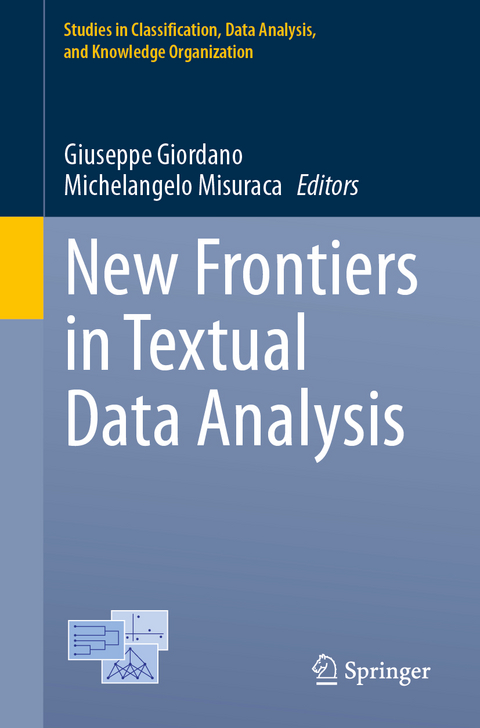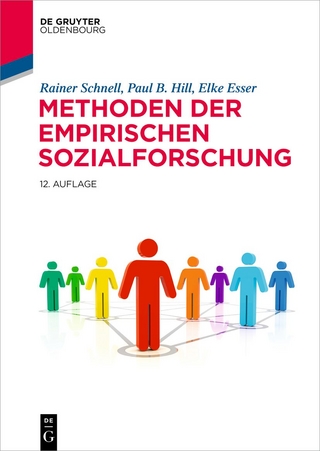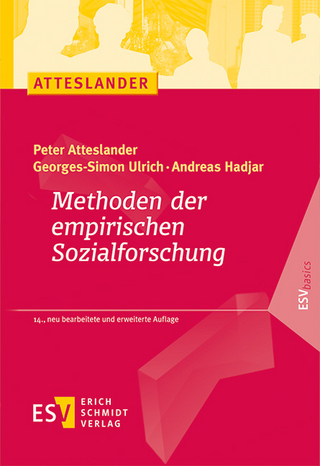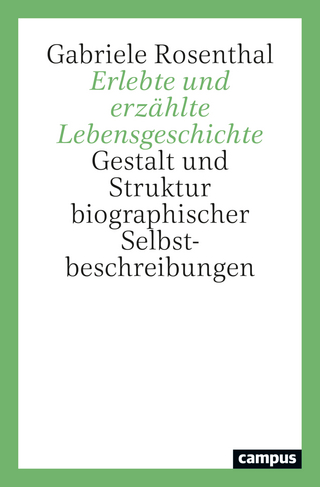
New Frontiers in Textual Data Analysis
Springer International Publishing (Verlag)
978-3-031-55916-7 (ISBN)
The refereed contributions were originally presented at the 16th International Conference on Statistical Analysis of Textual Data (JADT 2022), which took place in Naples, Italy, on July 6-8, 2022. The biennial JADT meeting discusses theories, problems, and practical uses of textual data analysis in various fields, sharing a quantitative approach to the study of lexical, textual, pragmatic or discursive features of information expressed in natural language.
Giuseppe Giordano is an Associate Professor of Statistics at the Department of Political and Social Studies, University of Salerno, Italy. He teaches Statistics and Analytics for the Social Sciences. His research interests are mainly in Multidimensional Data Analysis, Social Network Analysis, and Analysis of Complex Data Structures with a focus on real problems emerging in several applicative fields.
Michelangelo Misuraca is an Associate Professor of Statistics for Social Sciences at the Department of Business Administration and Law, University of Calabria, Italy. He teaches Statistics for Social Sciences and Textual Statistics at the University of Calabria and at the University of Naples Federico II. He is a fellow of the Italian Statistical Society (SIS) and of the Royal Statistical Society (RSS). His primary research interests are in the domain of Text Mining and Social Media Mining
Part I Statistical methods for Textual Data Analysis.- Statistical and deep learning methods for a linguistic and literary analysis.- Statistical profiling of Hybrid CNN-SVM effectiveness.- EMOtivo: a classifier for emotion detection of Italian texts trained on a self-labelled corpus.- Community detection and semantic analysis on Twitter. The case of No greenpass and No vax movement in Italy.- Evaluating customer satisfaction through Amazon reviews analysis: the Bluetooth earphones example.- Symmetric Non-Negative Matrix Factorization for analysing the scientific production on day surgery.- Social Media Effects on Sales: consumer sentiment in a state-space model.- Part II Advances in language processing.- Quality enhancements in experimental statistics: the Italian Social Mood on Economy Index.- A Strategy to Identify the Peculiarity of a Lexicon in the Analysis of a Corpus.- Neologisms and estrangement in a corpus of science-fiction.- Automatic retrieving ofderived Quechua verbs.- A Stylometric profile of Carmen Mola in the gender of 'her' authorial persona and the contribution of each author behind the pseudonym.- Automatic Genre Classification of Czech Texts Based on Syntactic Functions.- Deep learning as an aid to text mining in the choice of texts to lemmatise for a comparison corpus: a stylistic study of Peter Damian's letters.- Dialogic Process Analysis in Natural Language Processing: an attempt to describe sense of reality and meaning of textdata.- Multi-channel Convolutional Transformer and intertextuality: a Latin case study.- Part III Emotional and Sentiment Analyses.- Opinion Mining Hybrid Approach. An application to investigate the users' political positions in disinformative echo chambers.- Prediction of Italians' sentiment during the first COVID-19 lockdown through a weighted random forest balanced with SMOTE algorithm.- Sentiment analysis on social network data: the Regional Index RETI.- Integrating text mining and hermeneutic analysis: the case of international volunteering biographies.- Emotional text mining and multilingual corpora: The analysis of #Covid-19 on Twitter.- Emotional Markers as Indicators of Investor Attitudes: EDA Sub - Process Proposal.- "The Spanish Model": an analysis of Spanish culture in Organ Donation through the Emotional Text Mining.- Part IV Textual Data Analysis in action.- Comparative analysis of national reports: the case of the Erasmus+ ECOLHE Project.- Action Research in Psychology: the case of adoptive family.- Uncovering Uncertainty in Narrative Economics: A Semantic Search Approach.- Italian Institutional communication in pandemic period: a chronological analysis of Prime Minister speeches.- What about corruption? A text analytics method for a scoping literature review.- The stability of the discursive framework of the Ministry of Foreign Affairs tested by textometry.- Statistical analysis of textual data for longitudinal analysis. A studyon postgraduate course participants' reflections.- Third Mission & VQR 2015-2019: A Bigram's Story.
| Erscheinungsdatum | 25.09.2024 |
|---|---|
| Reihe/Serie | Studies in Classification, Data Analysis, and Knowledge Organization |
| Zusatzinfo | XI, 396 p. 129 illus., 99 illus. in color. |
| Verlagsort | Cham |
| Sprache | englisch |
| Maße | 155 x 235 mm |
| Themenwelt | Sozialwissenschaften ► Soziologie ► Empirische Sozialforschung |
| Schlagworte | Applications in Public Health • Applications in the Social Sciences • classification • Clustering • Data Mining • Deep learning • Emotional Text Mining • Latent Dirichlet Allocation • Natural Language Processing • network analysis • sentiment analysis • social media mining • statistical analysis of textual data • text analytics • Text Mining • textual data analysis |
| ISBN-10 | 3-031-55916-9 / 3031559169 |
| ISBN-13 | 978-3-031-55916-7 / 9783031559167 |
| Zustand | Neuware |
| Informationen gemäß Produktsicherheitsverordnung (GPSR) | |
| Haben Sie eine Frage zum Produkt? |
aus dem Bereich


